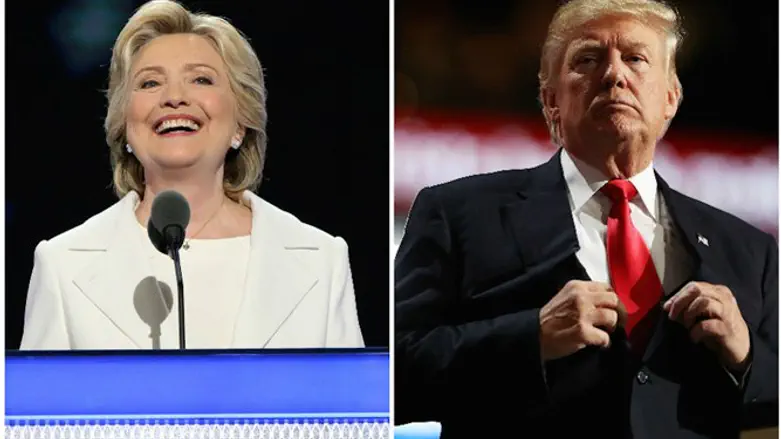
The first debate between the two US presidential candidates, Hillary Clinton and Donald Trump, will take place Monday at Hofstra University in Long Island, New York.
The candidates will be asked to address pressing issues on the American public agenda. The answers they give, as well as their body language, facial expressions, and general demeanor, will provide tools for the voters to choose between Trump and Clinton.
Millions of viewers from around the world will follow this debate, as well as the two others scheduled before elections day. Past experience has shown that the debates have a major impact on public perception of presidential candidates, and so Clinton and Trump have reportedly been preparing for the debates for weeks, rehearsing answers to likely questions as well as some rhetorical barbs to be directed at opponents.
Anticipation for this particular round of debates is running sky high, as television showmanship - which serves candidates very well at these debates - is considered to be Donald Trump's strongest suit. In fact, one of the key selling points for Trump in the Republican primaries was the anticipation that he would be more aggressive, direct, and confrontational toward Clinton in the debates, something many Republican voters would very much like to see.
A Reuters poll estimates that 22% of US voters are still undecided as to who (if anyone) they will support come election day. This is a very high percentage, double the proportion of undecided voters at the same point of the 2012 election campaign pitting Barack Obama against Mitt Romney.
All this means that the debate on Monday may prove especially crucial to the outcome in November.
The debate host and moderator will be Lester Holt, the NBC Nightly News anchor. He has already announced that the questions will revolve around three topics: "America's Direction," "Achieving Prosperity," and "Securing America."
A Los Angeles Times poll published on Sunday shows Trump with a 4% lead nationwide on Clinton. Of those polled, 42% said they'd vote for Clinton, while 46% said they'd be voting Donald Trump in November.
A McClatchy-Marist poll, however, yielded very different results, with 48% saying they'd vote for Clinton and only 41% for Trump.
The high-variance nature of the campaign looks set to continue with the volatile base of undecided or wavering voters, a state of affairs that points at unpredictability being the only certainty going forward.
